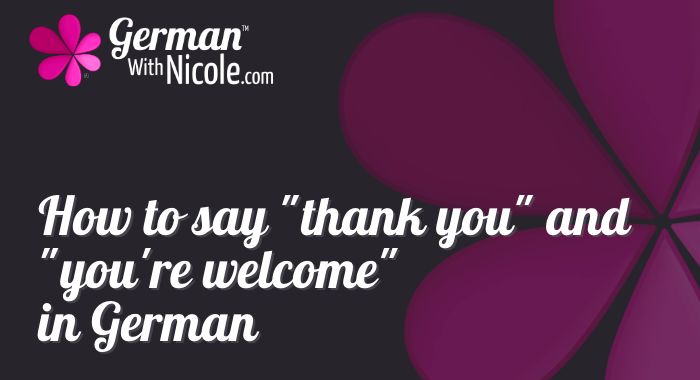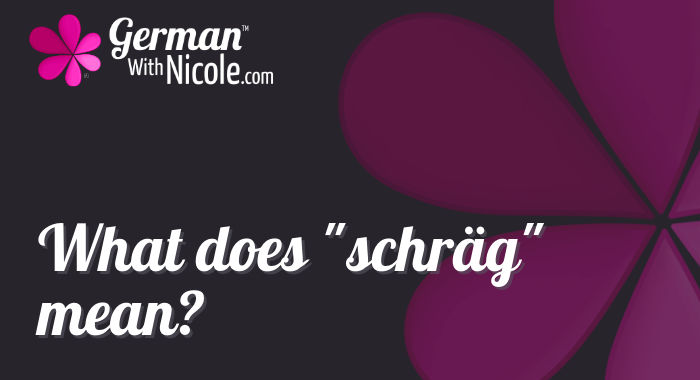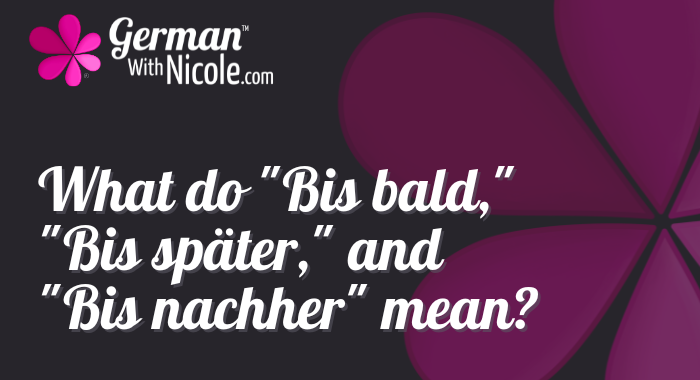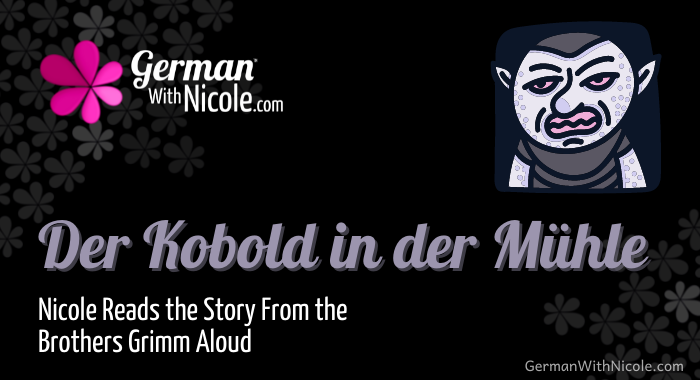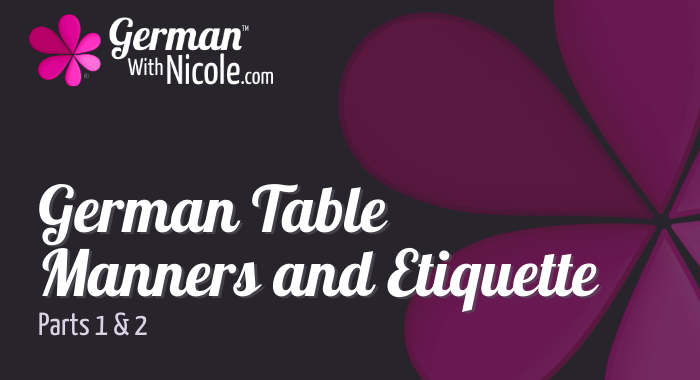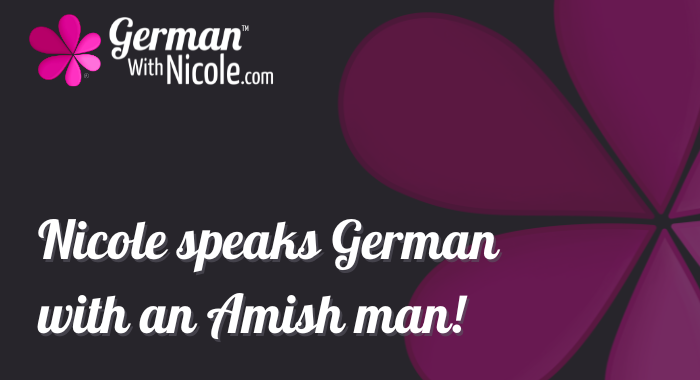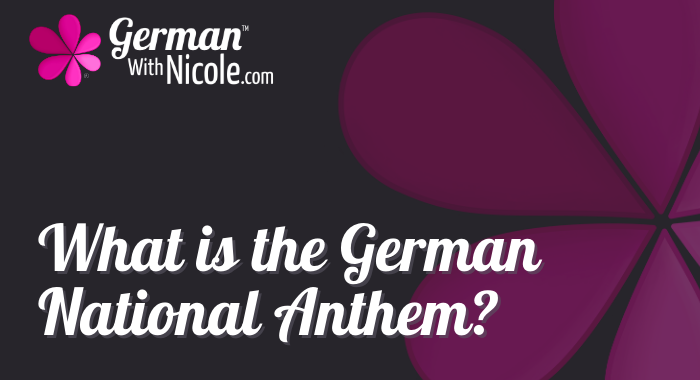das Blog
German Christmas Markets
Visiting a German Christmas Market is a true feast for the senses. It may forever change your expectations of the holiday season.
In this episode you'll learn about:
-
the main point of the Weihnachtsmarkt
-
who to go with
-
the various beverages available
-
what you can eat there
-
what you can shop for there
I might not be able to bring you a Weihnachtsmarkt, but I can bring you an Adventskaffee (an Advent coffee hour) plus a booklet of holiday-themed puzzles for German le…
7 Holiday Greetings in German, from Hanukkah through Christmas and into the New Year
Holidays mean greetings.
In Germany that means many holiday greetings. For different people.
When do you say what to whom?
Learn in this episode of the GermanWithNicole.com Podcast:
-
How to wish someone a nice Advent in German
-
How to say Happy Hannukah in German
-
How to say Good Yule in German
-
How to say Happy Holidays in German
-
How to say Merry Christmas in German
-
How to say Happy New Year in German
-
and a couple more.
AND you'll learn when to say which g…
How to say "thank you" and "you're welcome" in German
Learning to say thank you and you're welcome in German is really important, as it's part of good manners in German culture and it's also really easy to learn.
Danke. = Thank you.
Bitte. = You're welcome.
But do you hesitate to say them?
I used to hesitate, too, until I attended a soccer game (Schalke 04 - Glück auf!) and the crowd taught me the importance of "Danke" and "Bitte."
Ein Fußballspiel, eine Bratwurst, danke und bitte.
Los geht's!
N.B. The A1-A2-B1 German Sentence Structure…
What does "schräg" mean?
You probably enjoy those lists of German words that can't be translated into English as much as I do.
They go around the internet again and again, but have you noticed they're usually the same words?
This word, schräg, never shows up on one, and it deserves to be on every list.
In this episode you'll learn all about the word schräg.
You'll learn what it means, how to pronounce it, and how to use the word schräg.
Und machen Sie Ihre Hausaufgaben! (Do your German homework.)
N.B. The A1-…
What do "Bis bald," "Bis später," and "Bis nachher" mean?
How do you tell your friend you're going to see her soon in German?
There are so many choices, and in German they're not direct translations.
In fact, so many German learners get this wrong, I use this topic as a barometer to tell me how well someone speaks German.
Today we'll break down and put together the many forms of:
-
Bis bald!
-
Bis später!
-
Bis nachher!
-
Bis Samstag!/Bis um 11 Uhr!
You'll hear your homework for this week, too, natürlich.
N.B. The A1-A2-B1 German…
How Does German Culture Compare to US Culture?
Frequently, very frequently I find myself confused by living in the US again.
The culture is simply so different from German culture, which is where I began my post-grad school life.
I couldn't put words to all of it, but then a friend of mine asked me recently, "Of all the places you've been, where did you have the most culture shock?"
It took me weeks to sort out my answer.
After considering the 21 countries and perhaps 18 states I've visited, I've finally got my answer.
In this episode w…
Frau Warner reads aloud: "der Kobold in der Mühle" from the Brothers Grimm
It's a 'scary' time of year and to go along with it, here is your Brothers Grimm fairy tale in a video.
You might not know Der Kobold in der Mühle, however it's every bit as eery as the other fairy tales.
What does Kobold mean?
A Kobold is a "house spirit," a German folk being who takes care of household tasks and sometimes causes mischief.
Britannica.com has a fantastic description of a Kobold that includes this important information:
"...mischievous household spirit who usually helps wi…
German Table Manners and Etiquette, Parts 1 and 2
German table manners and etiquette might be like what you know, or they might be very different.
In German this is called Esskultur is the culture of food, dining, and manners.
For most Germans, Esskultur begins when they are in high chairs and their parents teach them to eat when the adults are eating, to wait until the adults are finished to be excused from the table, how to use a napkin, and how to use their eating utensils.
In the US, manners vary widely and the manners you learn depends …
Frau Warner speaks German with an Amish man!
In August I visited friends in Ohio and their area is also Amish country.
We visited Behalt, an Amish & Mennonite Heritage Center, and I got to speak German with an Amish man.
I got to speak German with an Amish man!!!
I also learned that:
-
most people have no clue about the Amish and Mennonite people.
-
most of what we (think we) know about the Amish and Mennonite is incorrect.
-
the Amish speak no Dutch!
-
they're also not from Pennsylvania.
-
they don't all speak Pfälzisch.…
What is the German National Anthem?
The German National Anthem is known as the Nationalhymne or Das Lied der Deutschen, "The Song of the Germans."
In today's episode of the podcast for German learners you'll hear:
-
the current national anthem
-
a bit of its history
-
the German National Anthem sung in German (by yours truly!)
It's really important to note the specifics of this Anthem because there is a strong connection to German history, one that is to be remembered and respected.
Besides, wouldn't you like to im…
Categories
- A1 (69)
- A2 (54)
- B1 (46)
- B2 (23)
- C1 (22)
- Deutsch lernen (80)
- Einkaufen (15)
- Essen (12)
- Grammatik (23)
- Hören (14)
- Landeskunde und Kultur (50)
- Lesen (11)
- Musik (5)
- Nachrichten (4)
- Podcast (64)
- Pronunciation (3)
- Schreiben (3)
- Schwäbisch (4)
- Spiele und Spaß (Games and Fun) (12)
- Sprechen (13)
- Vokabeln (39)
- Video (11)
Would you like to hear about future German classes with Frau Warner?
With the E-Post, you'll receive information on German class registration and goings-on in German classes, all written by Frau Warner. You'll receive an email on Tuesdays, plus an extra email or two when class registration opens or there's something new.


